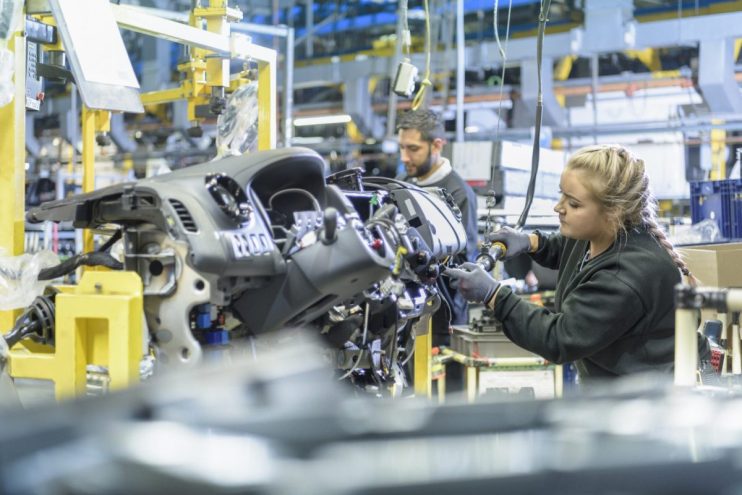UK Manufacturing PMIs: Staff and parts shortages sees recovery begin to slow

The UK manufacturing upturn remained solid in July but failed to hit the heights of previous months as supply chain and labour constraints began to snarl up production lines across the country.
The manufacturing Purchasing Managers’ Index stood at 60.4 last month, down from previous highs in May of 65.8.
Read more: UK jobs market recovery accelerates on better than expected consumer spending
It was the second successive month in which the reading has fallen as businesses continue to struggle with logistical issues caused by the pandemic and Brexit.
Any number over fifty represents positive growth, but IHS Market / CIPS – who compile the index – said “scarcities remained a prime concern… as stretched supply chains and staff shortages were constraints preventing faster growth of output and employment.”
The disruption has taken various forms, such as car manufacturers struggling to get hold of semiconductor chips amid a global dearth, or production lines idled due to workers having to isolate due to the “pingdemic”.
A 60,000-strong shortage of HGV drivers as a result of new customs rules is also driving supply shortages.
As a result, analysts warned that price pressures had continued to grow during July due to demand outstripping supply.
“Average input costs rose at a near survey-record pace, with over 72 per cent of manufacturers seeing an increase,” reads the report.
Dave Atkinson, Head of Manufacturing at Lloyds Bank, said the recovery remained strong but is losing momentum.
“Current headwinds manufacturers are grappling with include materials and labour shortages, a lack of HGV drivers and high freight costs, all of which are likely suppressing output,” he said.
“There is, though, the prospect of a second wind in the remainder of the year as supply chain issues are resolved and the chancellor’s super-deduction prompts spending on new plant and machinery.”
Samuel Tombs, chief economist at Pantheon Macroeconomics, agreed that the slide would likely be a temporary one.
“Looking ahead, the adverse impact of Covid-19 on production lines should ease over the coming months, thanks to changes to self-isolation rules for doubly-vaccinated workers and an easing of social distancing rules”, he said.
“Expanding manufacturers also should be able to source new employees more easily after the furlough scheme has been wound down at the end of September.”
